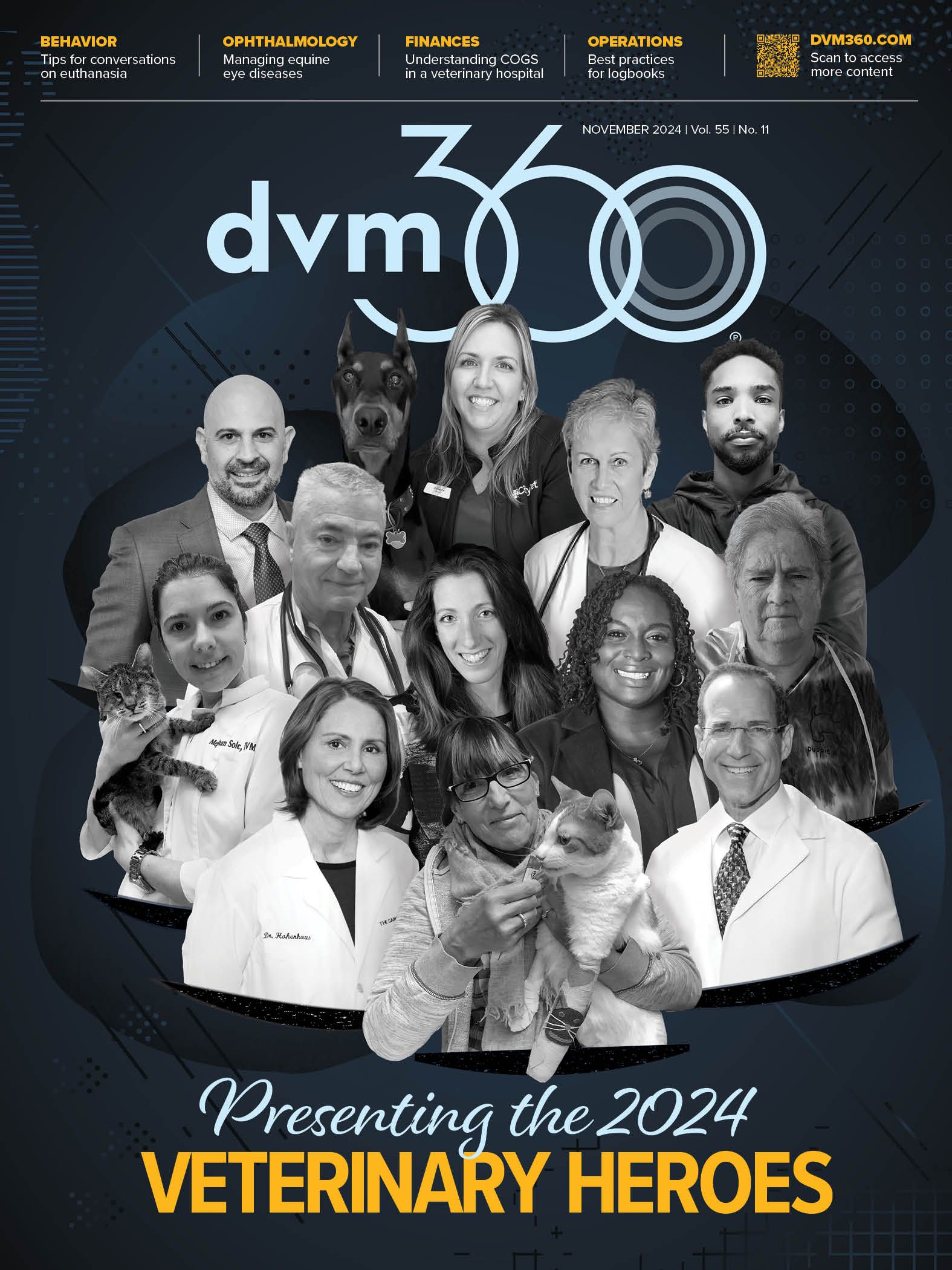Veterinary scene down under: Supporting new veterinarians and veterinary social work
Supporting new graduate rural veterinarians
Being a newly graduated veterinarian can be a challenging time, and Becky Dickinson, BVetMed (Hons), MVSc, wanted to do something to help, leading her to embark on a novel business idea – setting up Veterinary Support Services. The services offer external locum veterinary support to rural practices to accompany their veterinary graduates on farm calls and support them after-hours to mentor and support them in a structured way.
Becky Dickinson, BVetMed (Hons), MVSc, lancing abscess (Image courtesy of Veterinary Support Services)

“Our aging population of production animal [veterinarians] and the sustainability of Australia’s rural veterinary services concerns me deeply,” explained Dickinson, exclusively to dvm360®.
“I had long thought about the challenges new graduate [veterinarians] face in embarking on their large animal career, hearing many horror stories along the way, and watched closely as we continually lose young [veterinarians] to our small animal colleagues early in their career often due to lack of support on the road and difficultly obtaining confidence and clinical competence under the critical eyes of experienced producers.”
Veterinary Support Services provides clinical, practical, educational and mentoring support for recent veterinary graduates in mixed animal practice by accompanying the graduate in their vehicle to large animal call outs.
“We work alongside the graduate on farm as they carry out as much of the veterinary task as they can, guiding, teaching new skills, ensuring safe practices are followed and helping to improve their confidence as they gain competence in their large animal veterinary, communication, and psychosocial skills and develop independence in their general veterinary on-call duties,” said Dickinson.
“Veterinary Support Services also develops and delivers graduate-focused, practical-oriented continuing professional development. These educational events provide 'real world' practical training for management of common livestock health problems, education on mental well-being and development of professional and personal skills.”
Dickinson said that there are multiple goals to the service.
“By supporting, educating, and holistically improving graduate confidence and competence in the field, we are also supporting their rural veterinary practices by alleviating the pressure and demand on senior veterinary practitioners as they perpetually employ and train graduate vets,” explained Dickinson.
“We want to promote rural veterinary sustainability through career and professional support in order to create business models where graduates can thrive across all aspects of mixed animal clinical work and fostering careers in rural veterinary practice. It’s also about enabling the provision of high quality veterinary services to producers regardless of the attending [veterinarian’s] level of experience.”
Earlier this year, Dickinson was approached by the Cattle Compensation and Advisory Committee which represents cattle producers in the state of Victoria, to apply for a grant to expand the work of Veterinary Support Services.
In August, it was announced that Veterinary Support Services had received almost AU$1.5million from the Victorian State Government to deliver a 2-year structured Victorian Livestock Veterinary Scholarship Program for eight early career veterinarians across regional Victoria commencing in January 2025.
“My vision for Veterinary Support Services was always to be able to roll out our graduate support services across the state and then more widely across Australia as I gained business experience and support and recognition from the veterinary profession. I had anticipated that this would take several years before I could embark on this growth so to then be successful in securing funding to carry this out only two years after starting the business was gobsmacking and completely overwhelming,” said Dickinson.
Dickinson examining a hoof knife

“Pre-program planning is now underway as we advertise and market these scholarships widely within veterinary and agriculture networks. We are also currently busy developing tools and proform as for graduate clinical assessment, application shortlisting and interviewing and forming a comprehensive and structured training program for the candidates and their supervisors.”
Dickinson anticipates being able to announce the successful candidates and their practice locations in early December ahead of commencing the program on January 31, 2025.
“Our rural veterinarians are central to providing educated advice and helping manage and monitor livestock disease on farm, and therefore rural veterinary sustainability is paramount to the economic success and viability of Australia’s agriculture sector - one simply cannot exist without support from the other,” said Dickinson.
“Livestock graduates work largely unsupported and exposed, often needing to admit ‘failure’ to expectant producers, making farm work stressful and significantly impacting self-confidence. The large financial burdens associated with veterinary degrees and lower wages and income generation potential - compared to metropolitan companion animal clinicians, compound this stress. Mental well-being support is therefore also essential,” she concluded.
Funding for veterinary social worker training
The Veterinary and Community Care charity, which addresses the gap between vulnerable communities and access to essential veterinary care in Western Australia (WA), has received a landmark AU$279,500 funding commitment from the Western Australian Government to support its Veterinary Social Work Training and Services Pilot Project.
The 18-month pilot program, starting in early 2025, will train the first cohort of veterinary social workers in Western Australia. The Veterinary Social Worker Program aims to improve the health and wellbeing of animals and their caregivers, particularly those experiencing vulnerabilities such as homelessness, domestic violence, or financial disadvantage.
“This funding commitment from the WA Government is a game-changer for Veterinary and Community Care and the communities we serve,” said Paul Davey, OAM, BSc BVMS, director of veterinary and community care, in a media statement.1
“We are excited to develop the Veterinary Social Work program and provide critical support to people, their animals and the veterinary teams that serve both,” said Robyn Whitaker, BSc, BVMS, director and chair of Veterinary and Community Care.
Reference
WA Government announces support for Veterinary and Community Care’s pioneering Veterinary Social Work Program. News release. Veterinary and Community Care. September 16, 2024. Accessed September 30, 2024.

2 Commerce Drive
Cranbury, NJ 08512
All rights reserved.